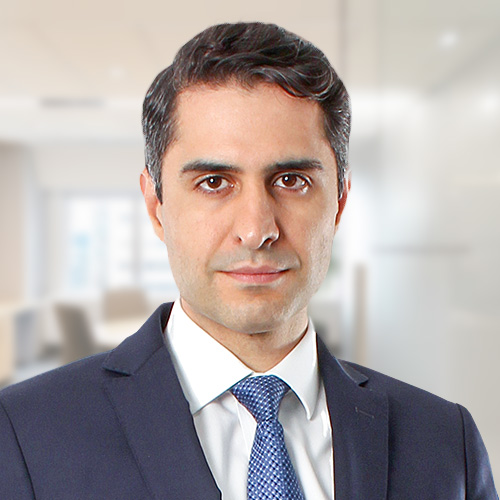Commentary
Meta…What?
February 17, 2022
February 17, 2022
Dear Clients and Colleagues:
In October 2021, Mark Zuckerberg made headlines by announcing the rebranding of Facebook into Meta Platforms to focus on the metaverse. Zuckerberg also announced plans to invest more than US$10 billion on related hardware, apps and services. For the general public, it was likely the very first time they heard about the metaverse. However, it had already become the main next-big-thing idea for many tech companies worldwide, with many of them putting their money where their mouth is and investing mind-boggling amounts in the metaverse-related projects.
Despite the seeming novelty, the term metaverse was first coined in 1992 as an Internet of the future based on virtual reality in the science fiction novel, Snow Crash by Neal Stephenson. Launched in 1999, Cyworld, a South Korean social network, created a two-dimensional virtual world and implemented several elements of the metaverse, such as avatars and virtual spaces, and became one of the first companies to profit from the sale of digital items. In 2003, United States (U.S.)-based tech developer Linden Lab launched an online virtual world called Second Life, which is considered the prototype of a metaverse in the Western Hemisphere. Quite a few top-rated video games, such as Minecraft, Roblox and Fortnite have many elements of the metaverse. However, saying that any of them is the metaverse overstretches a stretch, similar to saying that Google is the Internet. However, they do give a bit of a taste of the metaverse. Hollywood also made notable steps into exploring the metaverse, with the Matrix and Ready Player One movies.
Despite the current hype around the metaverse in media and tech business conversations, the term remains hard to define as there are many disagreements on what metaverse exactly is and how it should work. Will users have a single identity or avatar? Will there be a single operator of the metaverse? Will there be a single metaverse? If you have issues explaining what metaverse means to a three-year-old, you are not alone. Zuckerberg spent almost 80 minutes describing it during his Connect 2021 conference. You can check for yourself if he succeeded.¹ Although metaverse means different things to different people, most supporters will agree that it is essential for the Internet of the future.
Matthew Ball, a venture capitalist and author of multiple high-quality pieces on metaverse, suggests that it is too early to give it a single intuitive definition, but still offers his best swing: “The metaverse is a massively scaled and interoperable network of real-time rendered three-dimensional virtual worlds, which can be experienced synchronously and persistently by an effectively unlimited number of users with an individual sense of presence, and with continuity of data, such as identity, history, entitlements, objects, communications, and payments”.² With a risk of oversimplification, we can think of the metaverse as a virtual space shared with myriad users integrating digital reality and the physical world by employing different aspects of technology. It is expected to provide fully immersive experiences, be accessible on any device and have an economy enabled by digital money and non-fungible tokens (NFT).
In the not so distant future, users will be able to imitate or even migrate parts of their lives in virtual worlds, thanks to the efforts of numerous developers. Skeptics see a meager set of applications, primarily gaming and social networking. However, over time, metaverse can have a profound impact on society. Enterprise collaboration, fitness, education, healthcare, research and development, product engineering – this is a short list of activities that can reach a new level with the help of the metaverse. For instance, surgeons can perfect their mastery in the metaverse, and engineers can improve design prototyping while saving time and resources.
Even if the metaverse falls short of the fantastic pictures painted by science fiction authors, it is likely to generate substantial economic value, with some estimates coming in at trillions of dollars in revenue as a new immersive ecosystem and content platform. According to Gartner, the current buzz around the metaverse is expected to unwind and transition into numerous new business models so that by 2026, 30% of the companies worldwide will have products and services available on a metaverse, and 25% of the population globally will spend at least one hour per day for work, education, entertainment, social and other purposes on a metaverse.³ It would be very short-sighted to believe that the metaverse looks attractive only to tech nerds. For instance, Seoul⁴ and Shanghai⁵ are on the verge of making their foray into the metaverse.
Anticipating solid demand from investors, several asset managers started offering ETFs tied to the metaverse. Although it is still too early to gauge which investments will pay off in the long run, companies should take the time to study, investigate, and plan for a metaverse to gain a competitive advantage on the Internet of the future. Even Zuckerberg, with a very ambitious vision for the metaverse, thinks it could take up to 10 years to become mainstream.
We believe the metaverse architecture is based on the following building blocks, which allude to the business models poised to benefit from new massive market opportunities:
- Platform – providing a metaverse ecosystem.
- Content – providing content suitable for the metaverse.
- Infrastructure and software – providing technology and software related to the metaverse.
- Hardware – providing whole or components of devices connected to the metaverse.
Although it is too early to validate the sustainability of the investment case of the metaverse, we believe it is one of the most intriguing emerging themes that we are carefully studying at Global Alpha. Several holdings of our Emerging Markets strategy started exploring metaverse-related opportunities long before this idea hit the news. We want to point out that none of those investment cases were built purely around the metaverse opportunities, as those companies have high-quality core operations and appealing investment theses. However, they provide an option to tackle a massive market if efforts turn out to be successful.
AfreecaTV (067160 KS)
AfreecaTV, the most prominent South Korean live streaming platform transforming into a multi-vertical entertainment hub, with its strong content IP and fandom-like user following, is poised to capture the rising opportunities in the metaverse. On November 3, 2021, the company launched Afreeca Token Market, a digital NFT marketplace. The items available for trade include NFTs based on three-dimensional characters of popular AfreecaTV streamers, live streaming, and video-on-demand clips. On December 3, 2021, the first NFT bid for the avatar of a famous streamer, Chulgu, ended with a final bid of KRW 13.4 million, while other NFT bids for other popular streamer avatars were finalized in the range of KRW 3-7 million. On January 28, 2022, the company launched the open-beta version of its metaverse platform, FreeBlox. Although it is currently available only for PC in South Korea, AfreecaTV unveiled plans to deploy a mobile version soon and launch a global platform. Within the metaverse, we believe that AfreecaTV will explore various business models while users can interact with the streamers and participate in gaming, shopping, live broadcasting and other activities.
Elite Material (2383 TT)
Elite Material, based in Taiwan, is one of the global leading copper clad laminate (CCL) manufacturers. The metaverse will require massive network, storage and compute resources. According to Intel, a major data centre CPU manufacturer and client of Elite Material, the existing processing power is inadequate to support metaverse ambitions. Its senior vice president and head of Accelerated Computing Systems and Graphics Group, Raja Koduri, suggests that a thousand times increase in power might be needed over the current collective computing capacity.⁶ We believe that Elite Material is a major beneficiary of the secular growth of data centre capex given its ongoing market share wins within Intel and AMD server platforms and CCL content growth.
Ennoconn (6414 TT)
On January 4, 2022, Ennoconn, a leading industrial PC company in Taiwan specializing in embedded boards and systems, with applications in various vertical markets including point-of-sale (POS), automation, gaming, and networking, announced a new round of equity placement for Google. This partnership should enrich Ennoconn’s wearable devices capabilities for the industrial metaverse AR use cases. According to the International Data Corporation (IDC), AR and VR market is expected to grow at a 54% compound annual growth rate over 2020-2024.⁷
Have a nice week.
The Global Alpha team
1 https://www.youtube.com/watch?v=Uvufun6xer8
2 https://www.matthewball.vc/all/forwardtothemetaverseprimer
3 https://www.gartner.com/en/newsroom/press-releases/2022-02-07-gartner-predicts-25-percent-of-people-will-spend-at-least-one-hour-per-day-in-the-metaverse-by-2026
4 https://www.businessapac.com/seoul-government-venture-into-the-metaverse/
5 https://www.blockchain-council.org/news/shanghai-leans-towards-metaverse-in-its-progression-plan/
6 https://www.theverge.com/2021/12/15/22836401/intel-metaverse-computing-capability-cpu-gpu-algorithms
7 https://www.idc.com/getdoc.jsp?containerId=prUS47012020
This report is provided solely for informational purposes and nothing in this document constitutes an offer or a solicitation of an offer to purchase any security. This report has no regard to the specific investment objectives, financial situation or particular needs of any specific recipient and does not constitute a representation that any investment strategy is suitable or appropriate to a recipient’s individual circumstances. Global Alpha Capital Management Ltd. (Global Alpha) in no case directly or implicitly guarantees the future value of securities mentioned in this document. The opinions expressed herein are based on Global Alpha’s analysis as at the date of this report, and any opinions, projections or estimates may be changed without notice. Global Alpha, its affiliates, directors, officers and employees may sell or hold a position in securities of a company(ies) mentioned herein. The particulars contained herein were obtained from sources, which Global Alpha believes to be reliable but Global Alpha makes no representation or warranty as to the completeness or accuracy of the information contained herein and accepts no responsibility or liability for loss or damage arising from the receipt or use of this document or its contents.
Source: MSCI. The MSCI information may only be used for your internal use, may not be reproduced or redisseminated in any form and may not be used as a basis for or a component of any financial instruments or products or indices. MSCI makes no express or implied warranties or implied warranties or representations and shall have no liability whatsoever with respect to any MSCI data contained herein. This report is not approved, reviewed or produced by MSCI.







